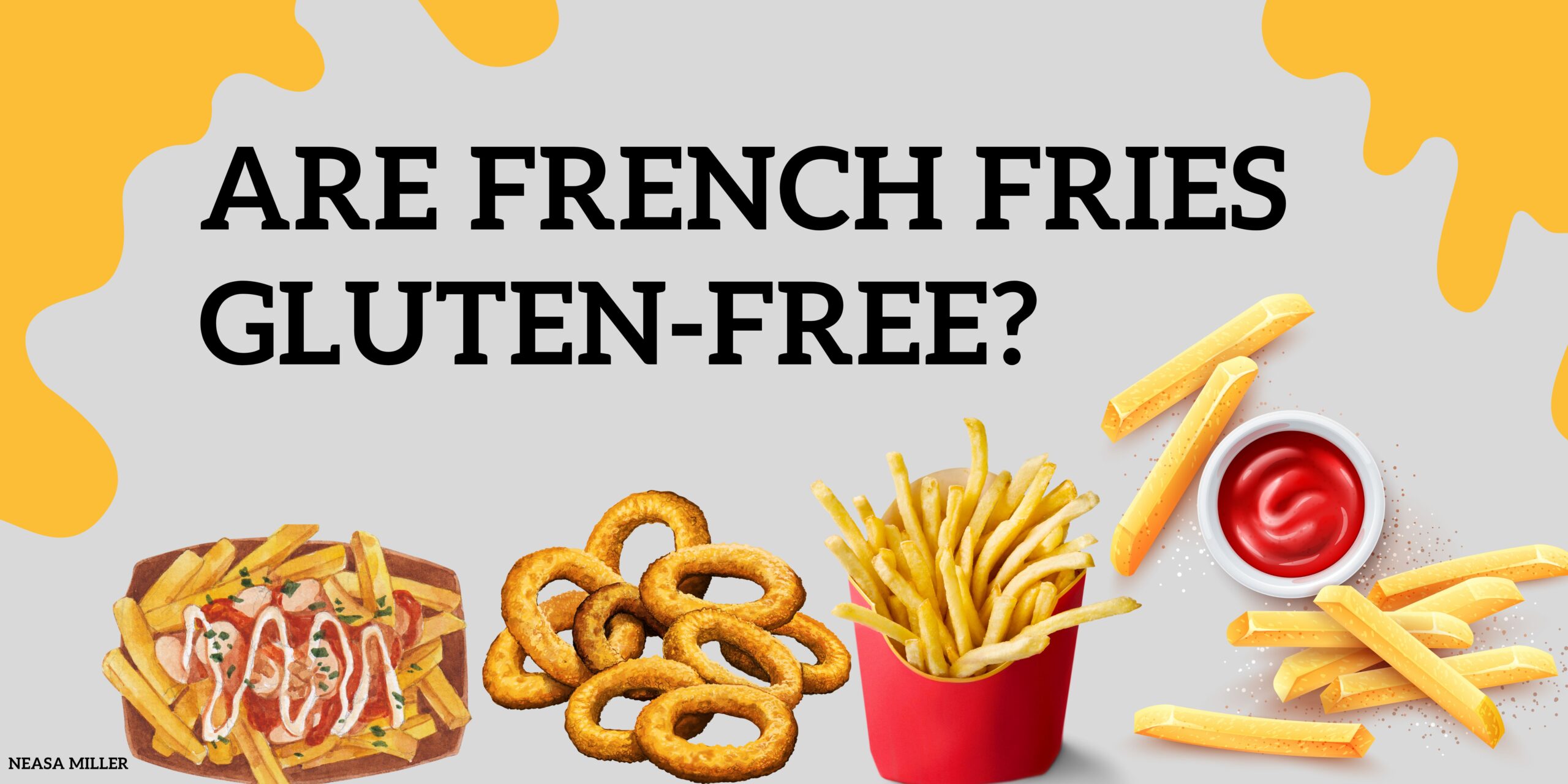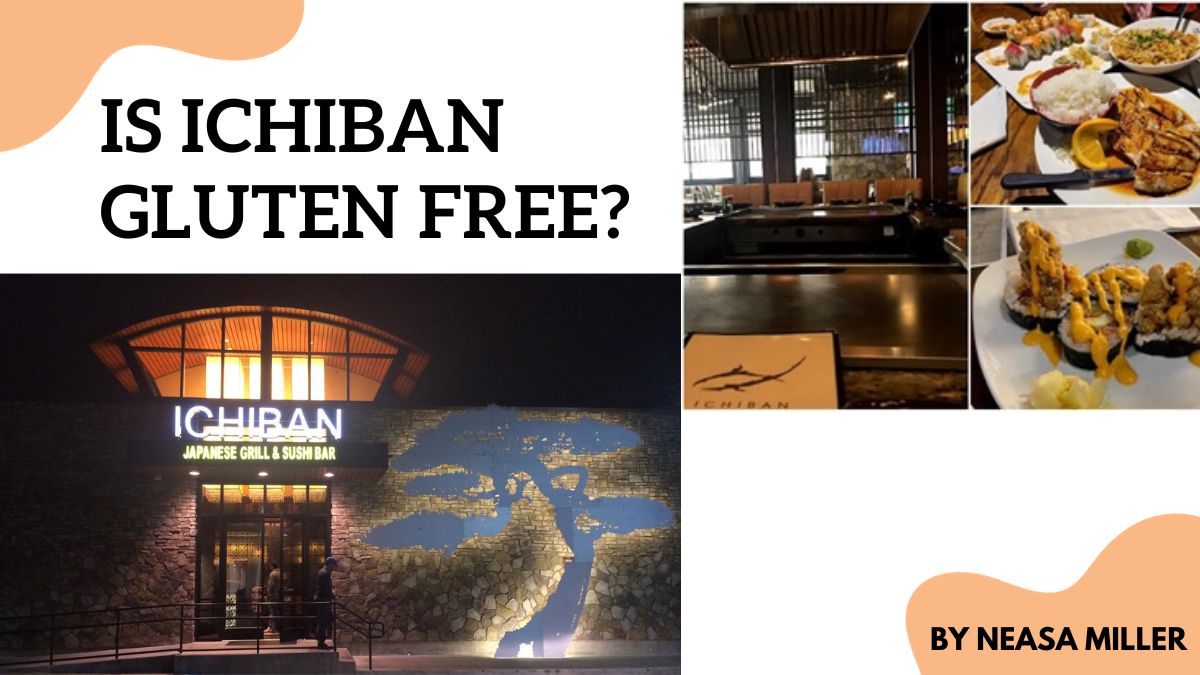French fries are a beloved comfort food enjoyed by many around the world. They are crispy on the outside, soft on the inside, and typically served hot and fresh. However, if you have a gluten intolerance or celiac disease, you might be wondering: are French fries gluten-free? This article will delve into the details of whether French fries are safe for those with gluten sensitivities and what you should be aware of when ordering or preparing them.
What Is Gluten?
Before we start looking into the particulars of French fries, it’s critical to comprehend what gluten is. A class of proteins called gluten is present in wheat, barley, rye, and their byproducts. It gives dough flexibility and a chewy texture, which makes it a popular component in a variety of processed foods and baked items.
For individuals with celiac disease or non-celiac gluten sensitivity, consuming gluten can trigger a range of health issues, including digestive problems, fatigue, and joint pain. Therefore, identifying gluten-free options is crucial for maintaining health and well-being.
Are French Fries Naturally Gluten-Free?
French fries are made from naturally gluten-free potatoes. Potatoes, when cut into strips and fried, do not contain gluten. In their purest form, French fries are safe for those with gluten sensitivities. However, several factors can introduce gluten into French fries.
Cross-Contamination Risks
One of the primary concerns with French fries is cross-contamination. This occurs when gluten-containing substances come into contact with gluten-free foods. Here’s how cross-contamination can happen with French fries:
- Shared Fryers: Many restaurants use the same fryer for both gluten-containing items (like breaded chicken) and French fries. This can cause gluten particles to mix with the fries, making them unsafe for individuals with severe gluten sensitivities or celiac disease.
- Contaminated Oil: Oil used for frying can sometimes be contaminated with gluten if it has been used to cook gluten-containing foods.
- Preparation Surfaces: If the surfaces or utensils used to prepare French fries have been in contact with gluten-containing foods, cross-contamination can occur.
Restaurant and Fast Food Considerations
When eating out, it’s important to check if the restaurant takes precautions to prevent cross-contamination. Many fast-food chains and restaurants are aware of gluten sensitivities and offer gluten-free options. However, the level of precaution can vary.
Fast-Food Chains
Many fast-food chains use shared fryers for French fries and other menu items. For example:
- McDonald’s: McDonald’s French fries are typically gluten-free in the U.S. and several other countries, but they are cooked in shared fryers with items that contain gluten. Check local guidelines and ingredient lists.
- Burger King: Burger King fries are often cooked in shared fryers. They might offer specific gluten-free options or guidelines in certain locations, but it’s essential to confirm before ordering.
- Wendy’s: Wendy’s French fries are generally considered gluten-free, but cross-contamination is still a possibility due to shared equipment.
Always confirm with the restaurant about their procedures for handling gluten-free foods to minimize the risk of cross-contamination.
Restaurants with Dedicated Fryers
Some restaurants and eateries have dedicated fryers for gluten-free items, which greatly reduces the risk of cross-contamination. These establishments may have more stringent protocols for preparing gluten-free French fries.
Homemade French Fries: A Safer Option
Preparing French fries at home allows you to have full control over the ingredients and cooking process. Here’s how you can ensure your homemade French fries are gluten-free:
- Use Fresh Potatoes: Start with fresh potatoes and cut them into fries or wedges.
- Avoid Pre-Packaged Frozen Fries: Many frozen fries are pre-seasoned and may contain gluten or be processed in facilities that handle gluten-containing products.
- Check Oil and Equipment: Use dedicated oil for frying and ensure all equipment (such as fryers or baking sheets) is free from gluten contamination.
- Seasoning: Use gluten-free seasonings and avoid using pre-mixed seasonings that may contain gluten.
- Cook in a Clean Environment: Make sure all surfaces and utensils used for preparing French fries are clean and free from gluten residue.
Gluten-Free Alternatives and Options
For those who cannot enjoy traditional French fries due to cross-contamination risks or other reasons, there are gluten-free alternatives available:
- Sweet Potato Fries: Sweet potatoes are naturally gluten-free and can be a tasty alternative to regular fries. They can be baked or fried and seasoned to your liking.
- Zucchini Fries: Made from zucchini, these fries can be a healthier, gluten-free option. They can be baked with a gluten-free breadcrumb coating for added crunch.
- Homemade Gluten-Free Fries: Experiment with different vegetables and gluten-free batters to create your versions of fries.
Savoring Safe Choices: Enjoying Gluten-Free French Fries
Navigating the world of French fries with gluten sensitivities can be challenging, but with a bit of knowledge and careful planning, you can enjoy this crispy favorite without worry. Whether you choose to prepare French fries at home or dine out, being informed about the risks of cross-contamination and available gluten-free options will help ensure you can savor every bite safely.
Conclusively, even though French fries are inherently gluten-free, there exists a possibility of cross-contamination resulting in gluten exposure. French fries can be enjoyed without sacrificing your health if you are proactive and cautious, whether you are eating at home or out. To maintain both a good and safe dining experience, constantly ask questions and double-check ingredients.
FAQs
1. Are all French fries gluten-free?
Not all French fries are gluten-free. The potatoes themselves are gluten-free, but cross-contamination from shared fryers or added seasonings can introduce gluten. Always verify with the restaurant or check ingredient lists for pre-packaged frozen fries.
2. How can I avoid cross-contamination at a restaurant?
To avoid cross-contamination, ask the restaurant if they have dedicated fryers for gluten-free items. Inquire about their cleaning procedures and whether they use separate utensils for gluten-free foods.
3. Can I eat French fries from a fast-food chain?
Many fast-food chains offer gluten-free French fries, but they are often cooked in shared fryers with gluten-containing items. It’s essential to check with the specific chain and location for their gluten-free policies and procedures.
4. Are there gluten-free frozen French fries available?
Yes, some brands offer gluten-free frozen French fries. Always check the packaging for gluten-free certification and ingredient lists to ensure they are safe for your dietary needs.
5. What are some gluten-free alternatives to French fries?
Gluten-free alternatives to French fries include sweet potato fries, zucchini fries, and homemade fries made from other gluten-free vegetables.



